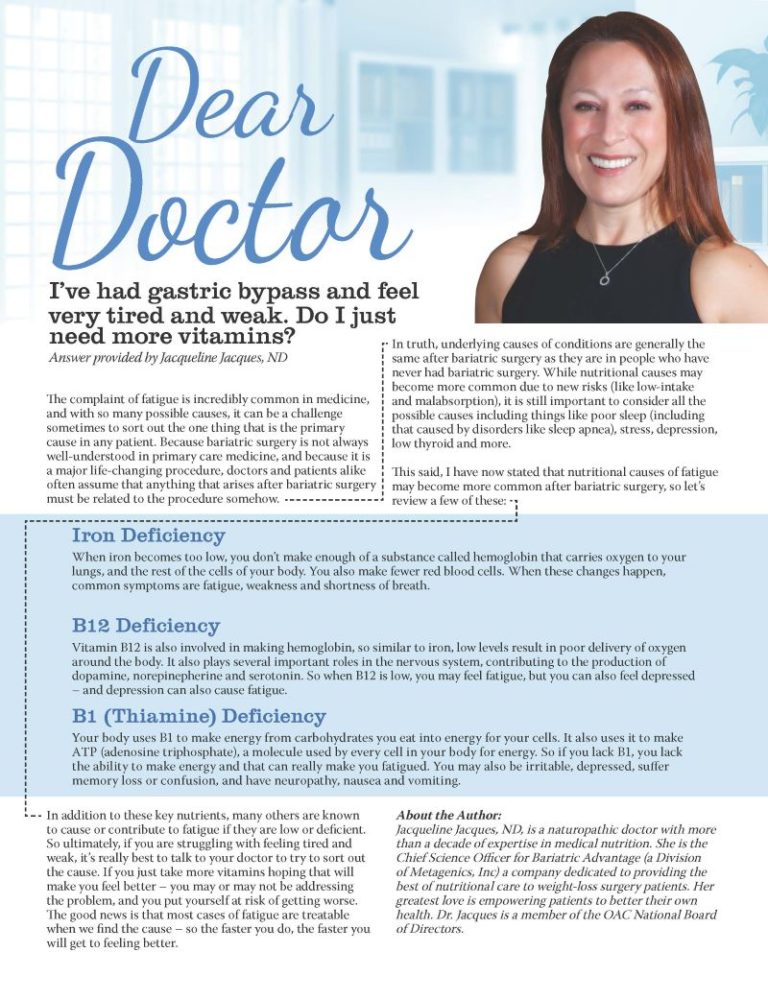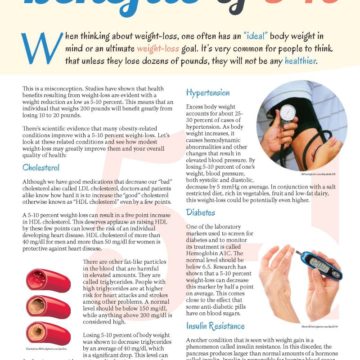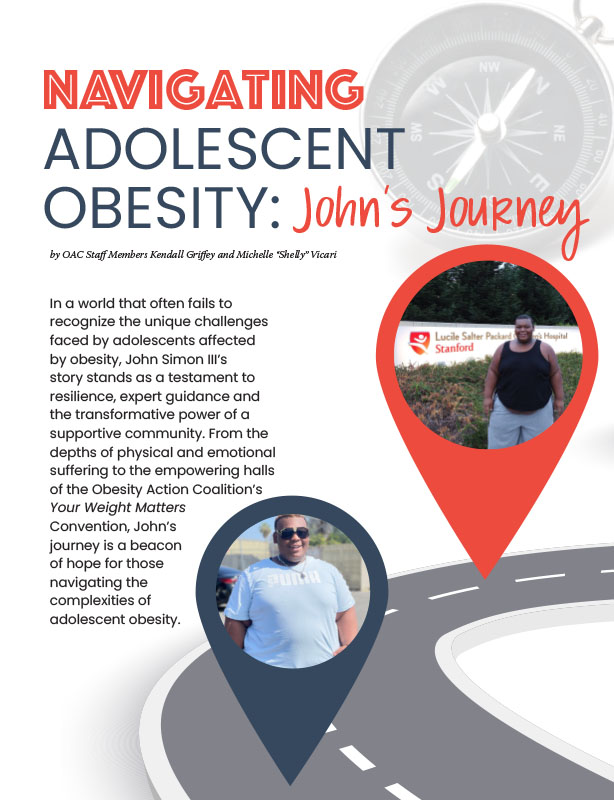Dear Doctor, I’ve had gastric bypass and feel very tired and weak. Do I just need more vitamins?


Answer provided by Jacqueline Jacques, ND
Fall 2013
The complaint of fatigue is incredibly common in medicine, and with so many possible causes, it can be a challenge sometimes to sort out the one thing that is the primary cause in any patient. Because bariatric surgery is not always well-understood in primary care medicine, and because it is a major life-changing procedure, doctors and patients alike often assume that anything that arises after bariatric surgery must be related to the procedure somehow.
In truth, underlying causes of conditions are generally the same after bariatric surgery as they are in people who have never had bariatric surgery. While nutritional causes may become more common due to new risks (like low-intake and malabsorption), it is still important to consider all the possible causes including things like poor sleep (including that caused by disorders like sleep apnea), stress, depression, low thyroid and more.
This said, I have now stated that nutritional causes of fatigue may become more common after bariatric surgery, so let’s review a few of these:
Iron Deficiency
When iron becomes too low, you don’t make enough of a substance called hemoglobin that carries oxygen to your lungs, and the rest of the cells of your body. You also make fewer red blood cells. When these changes happen, common symptoms are fatigue, weakness and shortness of breath.
B12 Deficiency
Vitamin B12 is also involved in making hemoglobin, so similar to iron, low levels result in poor delivery of oxygen around the body. It also plays several important roles in the nervous system, contributing to the production of dopamine, norepinepherine and serotonin. So when B12 is low, you may feel fatigue, but you can also feel depressed – and depression can also cause fatigue.
B1 (Thiamine) Deficiency
Your body uses B1 to make energy from carbohydrates you eat into energy for your cells. It also uses it to make ATP (adenosine triphosphate), a molecule used by every cell in your body for energy. So if you lack B1, you lack the ability to make energy and that can really make you fatigued. You may also be irritable, depressed, suffer memory loss or confusion, and have neuropathy, nausea and vomiting.
In addition to these key nutrients, many others are known to cause or contribute to fatigue if they are low or deficient. So ultimately, if you are struggling with feeling tired and weak, it’s really best to talk to your doctor to try to sort out the cause. If you just take more vitamins hoping that will make you feel better – you may or may not be addressing the problem, and you put yourself at risk of getting worse. The good news is that most cases of fatigue are treatable when we find the cause – so the faster you do, the faster you will get to feeling better.
About the Author:
Jacqueline Jacques, ND, is a naturopathic doctor with more than a decade of expertise in medical nutrition. Her greatest love is empowering patients to better their own health. Dr. Jacques is a member of the OAC National Board of Directors.
by Sarah Muntel, RD Spring 2024 Spring has sprung, bringing sunnier and warmer days! For many, this…
Read Articleby OAC Staff Members Kendall Griffey and Michelle “Shelly” Vicari Winter 2024 In a world that often…
Read Articleby Rachel Engelhart, RD; Kelly Donahue, PhD; and Renu Mansukhani, MD Summer 2023 Welcome to the first…
Read Article








